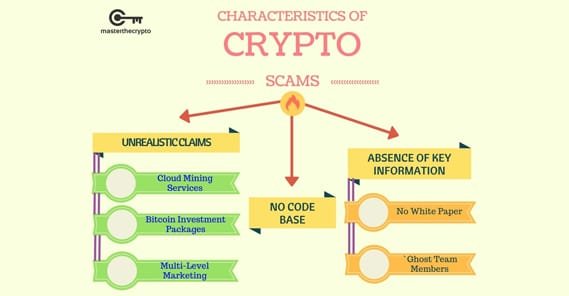
At this point, we all know what an affiliate program is. We know how to find the worthwhile, high paying affiliate programs. We know how to promote our affiliate codes organically and profitably. So what’s the new twist I’m bringing to the table today? Cryptocurrency.
Cryptocurrencies like Bitcoin really shouldn’t be thought of as currencies the way they stand today. It’s simply too difficult to use them as currencies without exchanges in every step of the process. They’re volatile and they’re traded, bought and sold like commodities, and that’s the way I’m going to treat them.
There are two ways, then, to approach a cryptocurrency affiliate program. Some of them are programs that deal with cryptocurrencies, but which pay you in dollars. Others are a wide range of services – usually those dealing in cryptocurrencies, but not necessarily – but which will pay out your affiliate commissions in Bitcoin or another cryptocurrency.
Both of them work pretty much the same as regular affiliate networks and referral programs. You sign up for the site. You get a referral link, which you can then promote to your audience. When someone using your referral link to sign up then completes whatever initial requirements they have to complete, you get your commission. The only difference is that sometimes those commissions are paid out in cryptocurrency.
Potential Issues
There are a few potential issues with going all-in with a cryptocurrency-based affiliate program. Before I go recommending any affiliate programs, I want to caution you for when you’re doing research on your own.
First up, like with all styles of affiliate program, there are scammers everywhere. This is not unique to the cryptocurrency markets, but it’s perhaps a little worse in a world where new businesses are springing up every week. Beware any affiliate program that has no reviews, no history, and seemingly too good to be true promises.

The typical scam is pretty simple; the affiliate program just refuses to verify some percentage of your commissions. They might have an explanation like the commission coming from a blacklisted IP, or from a country they don’t support, or some other attribute about the user that disqualifies them. They might also have no explanation and simply deny you the commission. The site gains a customer, but you don’t get your referral.
There are additional avenues for scams because of the volatility of Bitcoin and other cryptocurrencies. Say, for example, I set up an affiliate program saying you get a commission every time someone signs up with your link and goes on to deposit $100 worth of Bitcoin to their account. That seems fine, right? Well, what if the user deposits $100 worth of Bitcoin, but then the price of Bitcoin falls, making their deposit only worth $90? Now I can deny you the commission, saying the user didn’t maintain the right size balance.
And, as I mentioned, with an industry as new and variable as cryptocurrencies, there are a ton of different businesses springing up and going under every week. It’s very easy for a scammer who is caught and called out to set up a new business under a different name to run the same scam again. It can be pretty difficult to track down who actually founded such a business, so it’s hard to distinguish newcomers from old scammers if you’re not careful.
Plus, it doesn’t have to be a newcomer to he industry to pull a scam. There’s even some evidence to suggest Coinbase has pulled it.
And, of course, there’s the inherent volatility of a cryptocurrency. If you’re getting paid a commissions in a cryptocurrency, the value of that commission can swing up or down wildly in the span of days or weeks, based entirely on the news and public perception of the market. Now, obviously, if you’re not doing anything with your coin and you’re just holding it until it rises to the moon, that’s fine. A little volatility along the way is no big deal.
The problem comes when you’re trying to run a business. If you’re trying to use the payouts you get from your affiliate marketing to reinvest into your business, you want that money to be liquid and valuable. If your commission is $50 one day and $30 another based entirely on the whims of the market, you don’t have a stable source of income to reinvest. In those cases, I’d recommend looking for affiliate networks that pay out in cash, even if you’re promoting a coin-based product or service.
Types of Affiliate Opportunities
In the cryptocurrency world, there are a few different kinds of businesses you can use to find affiliate programs. I’ll cover each one individually, with example programs you might try out, but let’s do an overview first.
Before we dig in, though, just remember the core pillar of affiliate marketing; start small. Don’t go all-in promoting a service until you’re absolutely sure that affiliate program is going to pay out. The last thing you need to do is rack up thousands of dollars in commissions that just don’t get paid. That’s effort you spent and customers you referred for free, and that’s exploitation.
The first kind of affiliate program is pretty typical; retail. All manner of storefronts will offer referral programs or affiliate sales when you bring customers to them. The most famous of these is, of course, Amazon themselves. They don’t pay out in Bitcoin or deal with cryptocurrencies at all thus far, but a lot of other retails do. In particular, there are a lot of coin-centric retailers springing up like CryptoPet, stores that are essentially just normal retailers, except they allow you to pay with a cryptocurrency. Since they’re competing with major retailers like Amazon or Petco, they’ll often incentivize new customer acquisition with a referral program.

Casinos are a second kind of affiliate program, and it should come as no surprise that they love cryptocurrencies. Online casinos operate in a gray area in international legality that means they’re always looking for innovative ways to make money. Getting people to buy in and then paying out with cryptocurrencies is a good way for them to deal with people anonymously and with dubious legality, in a way that they can’t be punished for. Of course, it’s up to you if you want to support such an industry.
The third and forth categories are both cryptocurrency-specific services that, likewise, want to incentivize new members. Exchanges and Wallet services tend to have affiliate programs, both to try to get more people to adopt crypto, and more people to adopt it through them. They want their own slice of the market pie, so they’re willing to pay for it.
Let’s look at what kinds of affiliate programs are available, shall we? Of note, I haven’t’ personally tested any of these. As always, exercise caution before you start promoting any service. Also, please let me know if any of these fold, collapse, cut off their programs, or turn out to be scams; I’ll remove them from the list.
Posted from my blog with SteemPress : http://wer12.mipropia.com/wpwert/2018/05/24/how-to-earn-money-with-cryptocurrency-affiliate-programs/
Hi! I am a robot. I just upvoted you! I found similar content that readers might be interested in:
https://growtraffic.com/blog/2018/01/earn-money-crypto-affiliate
Downvoting a post can decrease pending rewards and make it less visible. Common reasons:
Submit